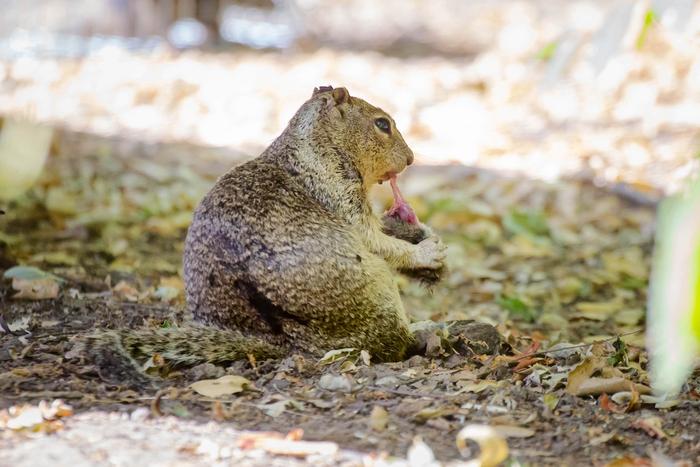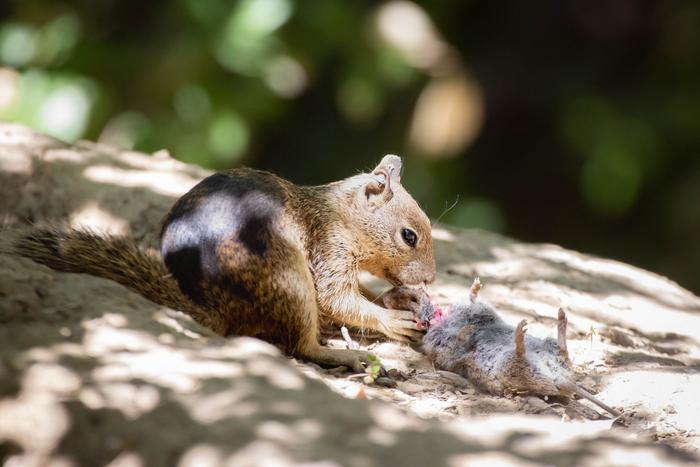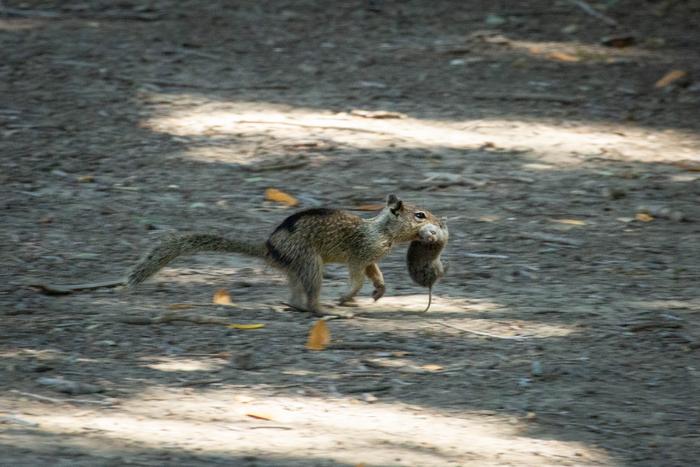The Independent's journalism is supported by our readers. When you purchase through links on our site, we may earn commission.
Scientists make ‘shocking’ predatory discovery about California’s ground squirrels
Ravenous California ground squirrels have been hunting and eating rodents for the first time
Your support helps us to tell the story
From reproductive rights to climate change to Big Tech, The Independent is on the ground when the story is developing. Whether it's investigating the financials of Elon Musk's pro-Trump PAC or producing our latest documentary, 'The A Word', which shines a light on the American women fighting for reproductive rights, we know how important it is to parse out the facts from the messaging.
At such a critical moment in US history, we need reporters on the ground. Your donation allows us to keep sending journalists to speak to both sides of the story.
The Independent is trusted by Americans across the entire political spectrum. And unlike many other quality news outlets, we choose not to lock Americans out of our reporting and analysis with paywalls. We believe quality journalism should be available to everyone, paid for by those who can afford it.
Your support makes all the difference.Ravenous California ground squirrels have been observed killing and eating small rodents, marking the first widespread carnivorous behavior documented among the species.
The squirrels, rodents themselves, are eating California voles. California vole subspecies are listed as species of special concern and one is endangered.
“This was shocking,” Jennifer Smith, an associate professor of biology at the University of Wisconsin-Eau Claire said in a statement. “We had never seen this behavior before.”
“Squirrels are one of the most familiar animals to people. We see them right outside our windows; we interact with them regularly. Yet here’s this never-before-encountered-in-science behavior that sheds light on the fact that there’s so much more to learn about the natural history of the world around us,” she said.
Smith was the lead author of a related study — led by the university and UC Davis — that was published in the Journal of Ethology.

The authors said this year’s observations fundamentally change our understanding of ground squirrels, with a more opportunistic diet than previously assumed.
Out of 74 interactions the Long-term Behavioral Ecology of California Ground Squirrels Project observed at Contra Costa County’s Briones Regional Park, 42 percent involved active hunting of the voles. And, the hunt included all ages and genders, according to evidence obtained between June and July.
“I could barely believe my eyes,” Sonja Wild, a postdoctoral research fellow in the UC Davis Environmental Science and Policy department who leads the project with Smith. “From then, we saw that behavior almost every day. Once we started looking, we saw it everywhere.”

The scary summer behavior peaked in the first two weeks of July when numbers of voles were reported to have exploded. The authors said this suggests their hunting behavior emerged alongside that temporary increase in the availability of prey. They didn’t see the squirrels hunting other mammals.
However, it remains unclear how widespread hunting behavior is among squirrels if it could affect the ecosystem, and how it could be passed down generationally.

“The fact that California ground squirrels are behaviorally flexible and can respond to changes in food availability might help them persist in environments rapidly changing due to the presence of humans,” Wild said.

Join our commenting forum
Join thought-provoking conversations, follow other Independent readers and see their replies
Comments